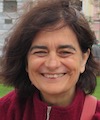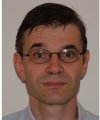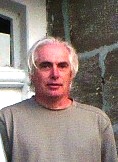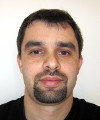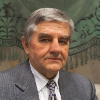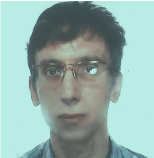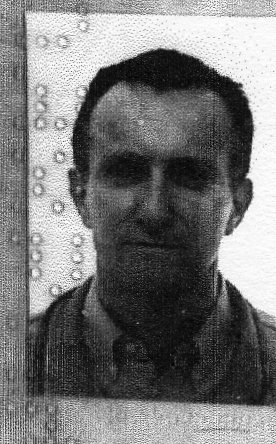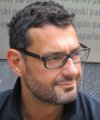Studying at the University of Verona
Here you can find information on the organisational aspects of the Programme, lecture timetables, learning activities and useful contact details for your time at the University, from enrolment to graduation.
Academic calendar
The academic calendar shows the deadlines and scheduled events that are relevant to students, teaching and technical-administrative staff of the University. Public holidays and University closures are also indicated. The academic year normally begins on 1 October each year and ends on 30 September of the following year.
Course calendar
The Academic Calendar sets out the degree programme lecture and exam timetables, as well as the relevant university closure dates..
| Period | From | To |
|---|---|---|
| I semestre | Oct 4, 2010 | Jan 31, 2011 |
| II semestre | Mar 1, 2011 | Jun 15, 2011 |
| Session | From | To |
|---|---|---|
| Sessione straordinaria | Feb 1, 2011 | Feb 28, 2011 |
| Sessione estiva | Jun 16, 2011 | Jul 29, 2011 |
| Sessione autunnale | Sep 1, 2011 | Sep 30, 2011 |
| Session | From | To |
|---|---|---|
| Sessione autunnale | Oct 19, 2010 | Oct 19, 2010 |
| Sessione straordinaria | Dec 13, 2010 | Dec 13, 2010 |
| Sessione invernale | Mar 22, 2011 | Mar 22, 2011 |
| Sessione estiva | Jul 22, 2011 | Jul 22, 2011 |
| Period | From | To |
|---|---|---|
| All Saints | Nov 1, 2010 | Nov 1, 2010 |
| National holiday | Dec 8, 2010 | Dec 8, 2010 |
| Christmas holidays | Dec 22, 2010 | Jan 6, 2011 |
| Easter holidays | Apr 22, 2011 | Apr 26, 2011 |
| National holiday | Apr 25, 2011 | Apr 25, 2011 |
| Labour Day | May 1, 2011 | May 1, 2011 |
| Local holiday | May 21, 2011 | May 21, 2011 |
| National holiday | Jun 2, 2011 | Jun 2, 2011 |
| Summer holidays | Aug 8, 2011 | Aug 15, 2011 |
Exam calendar
Exam dates and rounds are managed by the relevant Science and Engineering Teaching and Student Services Unit.
To view all the exam sessions available, please use the Exam dashboard on ESSE3.
If you forgot your login details or have problems logging in, please contact the relevant IT HelpDesk, or check the login details recovery web page.
Should you have any doubts or questions, please check the Enrollment FAQs
Academic staff
 alberto.benvegnu@univr.it
alberto.benvegnu@univr.it

Berardi Andrea
 andrea.berardi@univr.it
andrea.berardi@univr.it
 045 8425452
045 8425452
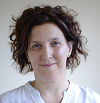
Magazzini Laura
 laura.magazzini@univr.it
laura.magazzini@univr.it
 045 8028525
045 8028525
 gino.mariotto@univr.it
gino.mariotto@univr.it
 martina.menon@univr.it
martina.menon@univr.it
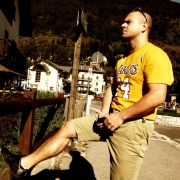
Squassina Marco
 marco.squassina@univr.it
marco.squassina@univr.it
 +39 045 802 7913
+39 045 802 7913
Ugolini Simone
 simone.ugolini@univr.it
simone.ugolini@univr.it
Venturin Manolo
 simone.zuccher@univr.it
simone.zuccher@univr.it
Study Plan
The Study Plan includes all modules, teaching and learning activities that each student will need to undertake during their time at the University.
Please select your Study Plan based on your enrollment year.
1° Year
| Modules | Credits | TAF | SSD |
|---|
2° Year activated in the A.Y. 2011/2012
| Modules | Credits | TAF | SSD |
|---|
3° Year activated in the A.Y. 2012/2013
| Modules | Credits | TAF | SSD |
|---|
| Modules | Credits | TAF | SSD |
|---|
| Modules | Credits | TAF | SSD |
|---|
| Modules | Credits | TAF | SSD |
|---|
| Modules | Credits | TAF | SSD |
|---|
Legend | Type of training activity (TTA)
TAF (Type of Educational Activity) All courses and activities are classified into different types of educational activities, indicated by a letter.
Computer Programming with Laboratory (2010/2011)
Teaching code
4S02751
Credits
12
Language
Italian
Scientific Disciplinary Sector (SSD)
INF/01 - INFORMATICS
The teaching is organized as follows:
Teoria
Laboratorio
Learning outcomes
Introduction to informatics.
Study the programming principles and their application to the solution of problems, mathematical ones in particular, by means of a particular programming language.
The fundamentals of programming.
The techniques for the analysis and solution of the problems; more we introduce the methods for the evaluation of correctness and efficiency of the algorithms.
In the laboratory we learn how to develop project of small or medium size in a specific programming language.
Program
- Introduction
Basics of Computer Science.
Part I - problems, algorithms and programs.
- Fundamentals: problem, specifics, algorithm; abstract machine, compiler and interpreter; programming languages.
- Introduction to the programming language.
- Elementary programming: basic instructions and development of simple programs.
- Data types. The general concept of data type: characterization and data representation. Variables, expressions and assignment. Abstract Data Types.
- Primitive data types: characterization, usage and related problems.
- Program structure. Fundamental instructions.
- Sub-programs: structure, parameters and visibility.
- Structured data types. Arrays, pointers, strings and other data structures.
- Basics of objects.
- Dynamic data structures.
- Introduction to graphs and other subjects.
Part II - Analysis of Algorithms
- Correctness: termination, logic properties; methods for the correctness verification.
- Introduction to the complexity. Performance of algorithms. Evaluation of efficiency. Computational costs.
- Asymptotic estimation of the complexity in time and space. The worst and medium case.
- Amortized analysis.
- Static sequences: implementation and algorithms.
- Matrices: implementation, operations and algorithms.
- Dynamic sequences: abstract definition and implementation; basic operations.
- Trees. Abstract definition and implementation. Basic operation. Binary research trees.
- Introduction to graphs.
Basics of Object Oriented Programming
--------------------
Laboratory.
In the laboratory we familiarize with the programming language developing projects based on the ideas presented in the lessons.
We study the fundamental elements of the language and we deal with the problems that arise in the development of the solution; in particular we acquire skill in editing, compiling, debugging and basic project management.
Bibliography
| Activity | Author | Title | Publishing house | Year | ISBN | Notes |
|---|---|---|---|---|---|---|
| Teoria | Bertossi, Alan e Montresor, Alberto | Algoritmi e strutture di dati (Edizione 3) | Città Studi Edizioni, De Agostini Scuola | 2014 | 978-8-825-17395-6 | |
| Laboratorio | Bertacca M. e Guidi A. | Programmare in Java | McGraw-Hill | 2007 | 978-88-386-6400-7 |
Examination Methods
The final exam is unique and consists in two parts:
- a written exam concerning the topics of the course and the laboratory projects.
- an oral part (the admission to this part is allowed only after passing the first one): discussion on the examination paper, the lab activity and in general on the topics of the course.
The final written exam can be replaced by verification the tests that take place during the course.
Type D and Type F activities
Modules not yet included
Career prospects
Module/Programme news
News for students
There you will find information, resources and services useful during your time at the University (Student’s exam record, your study plan on ESSE3, Distance Learning courses, university email account, office forms, administrative procedures, etc.). You can log into MyUnivr with your GIA login details: only in this way will you be able to receive notification of all the notices from your teachers and your secretariat via email and soon also via the Univr app.
Graduation
Documents
| Title | Info File |
|---|---|
|
|
pdf, it, 31 KB, 29/07/21 |
|
|
pdf, it, 31 KB, 29/07/21 |
|
|
pdf, it, 171 KB, 20/03/24 |
List of theses and work experience proposals
| theses proposals | Research area |
|---|---|
| Formule di rappresentazione per gradienti generalizzati | Mathematics - Analysis |
| Formule di rappresentazione per gradienti generalizzati | Mathematics - Mathematics |
| Proposte Tesi A. Gnoatto | Various topics |
| Mathematics Bachelor and Master thesis titles | Various topics |
| THESIS_1: Sensors and Actuators for Applications in Micro-Robotics and Robotic Surgery | Various topics |
| THESIS_2: Force Feedback and Haptics in the Da Vinci Robot: study, analysis, and future perspectives | Various topics |
| THESIS_3: Cable-Driven Systems in the Da Vinci Robotic Tools: study, analysis and optimization | Various topics |
| Stage | Research area |
|---|---|
| Internship proposals for students in mathematics | Various topics |
Attendance
As stated in the Teaching Regulations for the A.Y. 2022/2023, except for specific practical or lab activities, attendance is not mandatory. Regarding these activities, please see the web page of each module for information on the number of hours that must be attended on-site.
Career management
Student login and resources
Erasmus+ and other experiences abroad
Commissione tutor
La commissione ha il compito di guidare le studentesse e gli studenti durante l'intero percorso di studi, di orientarli nella scelta dei percorsi formativi, di renderli attivamente partecipi del processo formativo e di contribuire al superamento di eventuali difficoltà individuali.
E' composta dai proff. Sisto Baldo, Marco Caliari, Francesca Mantese, Giandomenico Orlandi e Nicola Sansonetto
